Whether you are a first-time homebuyer or a repeat buyer, here are answers to some common Home Buying Process questions.
What is the first step of the home buying process?
First, determine if purchasing a home is right for you. Homebuying decisions will include soul searching about your family's goals and needs. It's essential that you find the perfect house and that it fits into your overall financial plan. You wouldn't want to buy a new car without knowing the cost of owning it, so don't buy a house without understanding all of the costs associated with homeownership. You'll want to consider payments you would be responsible for: your monthly mortgage payment, taxes, insurance, and in some cases, HOA fees. Speak with your real estate expert, who can help walk you through the process.
Getting Pre-Approved
Before starting your home search, it is essential to get pre-approved to see the maximum amount you can borrow. In addition, getting a pre-approval letter shows a seller that you are a serious buyer.
How do I get started with pre-approval?
The first step is to meet with a lender. The pre-approval is done by filling out an application and presenting all of your financial information to your lender. Your lender will check your credit, debt-to-income ratio, and employment history. Be prepared to share your bank statements and tax returns.
I have a network of trusted lenders in the SF Bay Area that can assist you with the loan process (ask for a referral).
What's next after I get pre-approved?
Once you have your pre-approval letter in hand, your real estate agent will use this to determine how much you can spend on a house. Once you find a property, your agent will walk you through making an offer, getting a home appraisal, and inspections.
Should I order a home inspection?
Absolutely. You can ask for a home inspection before you offer to purchase a house and negotiate an inspection contingency into the contract.
Some loans, such as FHA and VA loans, require a home inspection.
How much do I need for a down payment?
A down payment is the initial sum of money you pay when purchasing a home. It's essential to analyze your budget before buying a property because this amount will impact your monthly mortgage payments.
Typically, conventional loans require a 20% down. However, some conventional loans require as little as 3% down.
"In 2021, the National Association of Realtors found the average down payment on a house or condo was just 12%. For home buyers aged 30 and under, that number drops to 6%." Themortgagereports
The FHA loan requires as low as 3.5% down payment. It is an excellent option for people who don't have the full 20% down payment available.
What are closing costs?
Closing costs, also known as settlement (or escrow) fees, represent the costs and deductions made from the total amount of funds available when the buyer purchases the house.
Work with your real estate agent to estimate closing costs based on your purchase price and loan type. Keep in mind that this is only an estimate because there are too many variables to calculate exactly what these fees will be.
The title company will also help you understand these costs, which typically include things like the loan origination fee (cost of borrowing the money), appraisal fee (price check on the house), attorney fees (document review and signing), credit report fee (checking your financial history), homeowner's insurance premium, recording fees, and transfer taxes.
How long does the closing process take?
The time it takes to close your escrow account can vary depending on how quickly you submit all of the necessary documents and on the speed of your lender.
Typically, it takes 30 to 45 days for a loan to close after the seller has accepted an offer.
How do I prepare for closing?
Before closing, you will receive instructions from escrow about where to bring all documents and what you should expect. It's important to carefully check all of the documents that your escrow officer sends you and make sure everything is correct. If there are any mistakes, notify your escrow immediately before closing occurs.
How much can I expect to pay for closing costs?
The closing costs will depend on where you live and what type of loan you have. Conventional loan borrowers typically pay less in closing costs than FHA or VA. However, this is not always the case. It's crucial to work with your real estate agent and lender when planning closing costs so that there are no surprises.
What are the advantages of large down payments?
The most significant advantage of a large down payment is reducing monthly mortgage payments.
Another advantage of having a 20% down payment is that you will avoid paying private mortgage insurance (PMI) that can cost anywhere from .5%-1.5% of the original loan, and it's usually only required when you put less than 20% down.
"PMI is usually required when you have a conventional loan and make a down payment of less than 20 percent of the home's purchase price." Consumerfinance
If you have questions about down payments, closing costs, and other vital real estate subjects, contact here.



